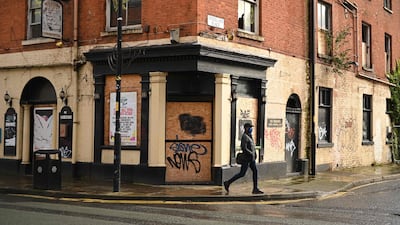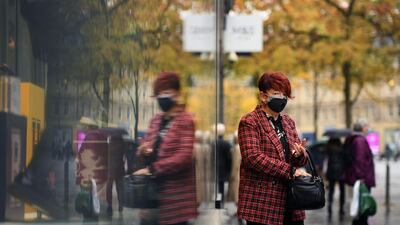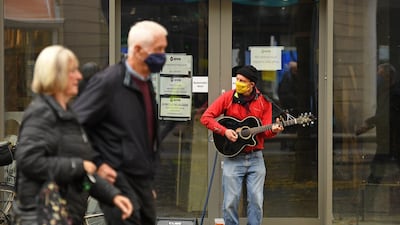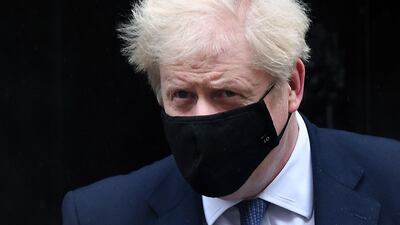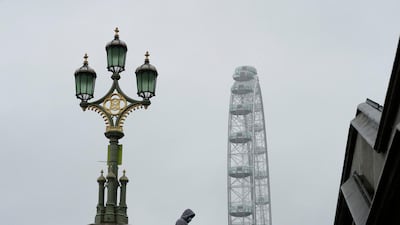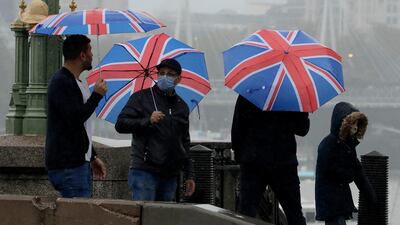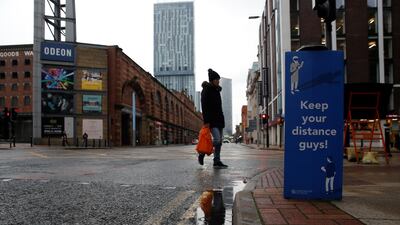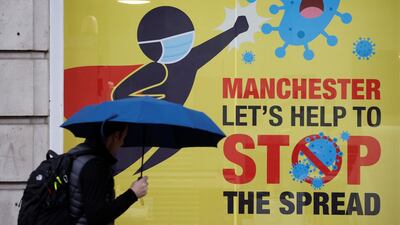It has long been known across the UK as “Madchester” but in recent years the country’s northern metropolis has developed a reputation as somewhere that is going places.
The spread of Covid-19 and the forced introduction of social and business restrictions by the UK government from Friday has put the brakes on that rise, causing consternation throughout the city.
Businesses were crushed after Manchester’s mayor Andy Burnham failed to persuade London to take a different approach to lockdown or provide more funding to cushion the blow.
Property and hospitality companies stand to suffer the worst impact of the Tier 3 restrictions to be imposed on Greater Manchester, expressing a mix of anger, frustration, fear and sadness on hearing the news.
“It’s a real kick in the teeth,” said Jake Ogden, co-founder of the Manchester Hospitality Network, which represents bars and restaurants in the city.
“Businesses would have planned their operations – ordered stock, set staff rotas and budgets – based on the Tier 2 restrictions imposed on the city a week ago. I don’t think you’ll find anyone in the sector who wasn’t behind Burnham, because [the UK’s current support equating to] two-thirds of a barman’s salary just wouldn’t cut it.”
UK Prime Minister Boris Johnson refused to stump up the £65 million ($85m) Mr Burnham had requested to support businesses during a Tier 3 lockdown, offering £60m instead.
Greater Manchester has been subject to a ban on mixing with other households indoors and a 10pm curfew since October 13. Meanwhile, several university accommodation halls have been under a local lockdown following outbreaks of the virus among students.
From Friday, non-essential travel in and out of the city will be discouraged and pubs and bars must close unless they serve “substantial meals”.
The latter is a “killer blow” for many hospitality businesses whose revenues come predominantly from the sale of drinks but also serve light snacks, according to Peter Kinsella, co-founder of Spanish restaurant Lunya, which closed its Manchester outlet during the first Covid lockdown but still has two open in Liverpool.
“So many outlets rely on people spontaneously going in for a drink and maybe ordering food later on, and it may not be worth them staying open with the overhead costs and reduced footfall in the city centre,” he said.
Covid infection rates in Greater Manchester have been above the national average for months, but there are many areas of England with higher rates. By the end of last week, Nottingham had the highest infection rate in the country, with 711.3 cases per 100,000 residents, compared with Manchester’s 424.7 cases per 100,000. But Nottingham remains in Tier 2 and there are no plans to change that.
Richard Leese, the leader of Manchester City Council, has said while the health of citizens is a paramount concern, placing the city under the highest level of restrictions is unjustified. “It simply isn’t equitable to treat one harm [Covid-19 infections] by harming thousands of people in the hospitality sector, many of them on minimum wage, and driving them into poverty,” he said.
“We put forward a carefully costed and evidenced package of proposals but the Government rejected them and failed to come up with constructive alternatives. The people of Manchester have been let down and it is deeply disappointing.”
Will Lewis, co-founder of property agency OBI, said strict health and safety measures enabled businesses to reopen after the national lockdown. “People have invested heavily in making bars, restaurants and workplaces Covid-safe – these are places that are safer than home environments and easier to monitor, so introducing harsher measures flies in the face of that investment,” he said.
The sense of opportunities lost pervades Manchester. Entrepreneurs had worked hard to secure international investment as the city diversified its historic industrial and manufacturing-led economy.
Many blamed a failure by the central government to appreciate how far it has come.
“It’s deeply disappointing to witness divisions between local and central government, which have hindered businesses’ ability to plan for the challenges ahead,” said Damian Waters, north-west director of the Confederation of British Industry.
Others are resigned to the country’s need to bring down its soaring infections rate, which hit 26,688 on Wednesday alone. Mike Ingall, chairman and chief executive of developer Allied London, whose Spinningfields district in Manchester city centre is home to several global professional services firms, as well as restaurants, said: “Hindsight is a wonderful thing, but, looking back, this was inevitable.
“We should have been more carefully managed out of lockdown in the summer, but instead the government encouraged people to go out and eat. Had there been more stringent controls in place, we would be in a good place right now.
“Instead, we are paying a huge price and it’s very frustrating.”
Sarah Townsend is editor of business news publication Place North West
